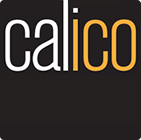Awards & Recognition
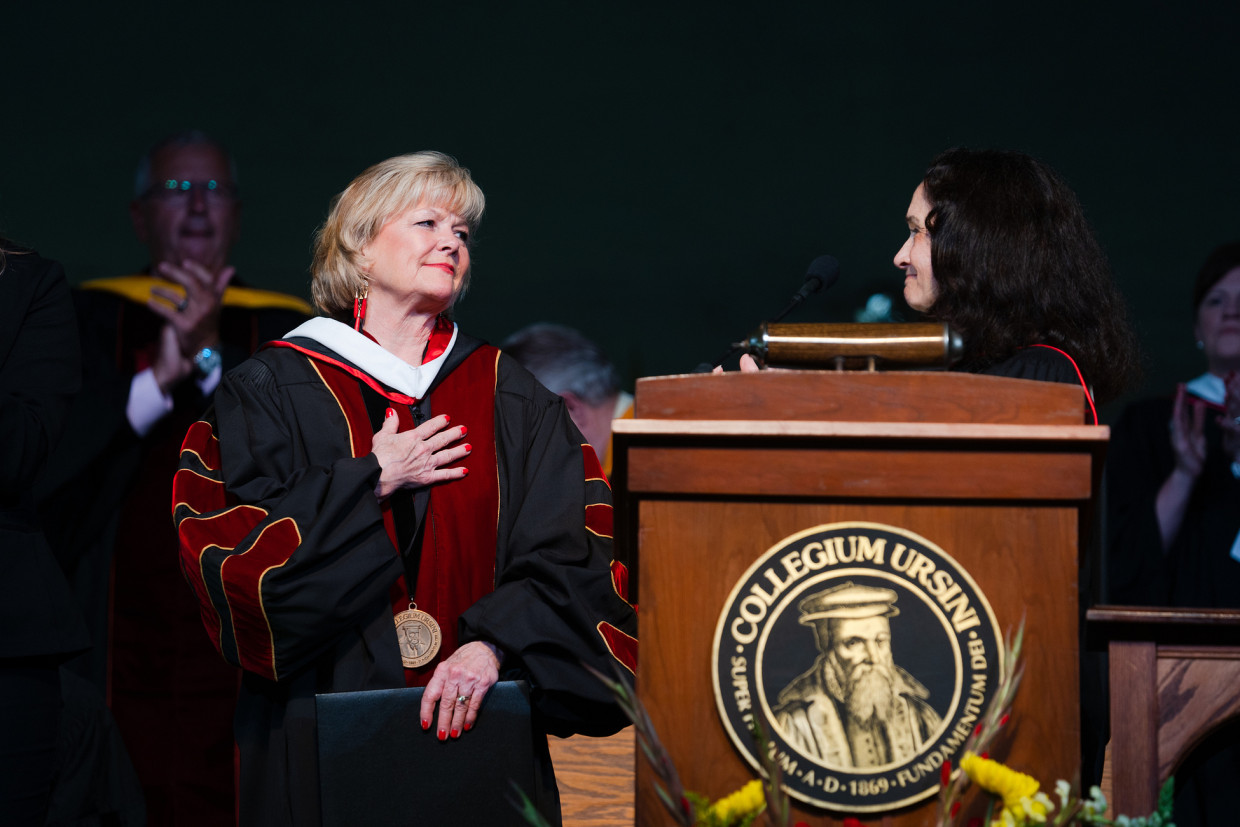
New Staff Professional Development Fund Established to Honor Marsteller’s Legacy
May 16, 2022
The Jill Leauber Marsteller ’78, P’18 Staff Professional Development Fund will support Ursinus staff members’ career enhancement and acknowledges her longtime commitment to the mentorship of her colleagues.
Long before she became Ursinus College’s first female president, Jill Leauber Marsteller ’78, P’18 had been known to her beloved Bear community as a trusted friend, mentor, and colleague. And no matter where her career has taken her, she has always inspired greatness from her staff by supporting their own professional development and personal fulfillment.
To honor her longstanding legacy at Ursinus and her widespread contributions to higher education, Marsteller’s colleagues, students, collaborators, family, and friends have come together to establish a professional development fund in her name that will be instrumental in ensuring that Ursinus staff have more opportunities to grow and develop their careers.
The Jill Leauber Marsteller ’78, P’18 Staff Professional Development Fund will offer expense reimbursements for travel and fees associated with conferences and/or learning opportunities or programs, while also providing support for staff-focused professional development initiatives led by the human resources office.
For anyone interested in contributing to the fund in Jill’s honor, please do so at this link.
“When you ask anybody who has worked or collaborated with Jill Marsteller what is special about her, two things are top of mind,” said Interim Vice President for Advancement Mark Gadson. “One is leadership. Jill leads by example—she sets the bar high, works harder than anyone else I know, and manages for results.”
“The second is caring for the people around her,” Gadson continued. “She firmly believes that you must help mentor and guide your fellow colleagues in order to create a positive and happy environment in which to work. Her belief and support for staff professional development has been proven by the longevity of the employees on the teams she has managed and their individual successes. This is why the Marsteller Staff Professional Development Fund is such an appropriate tribute to Jill and her extraordinary legacy, not only at Ursinus but at all the other institutions she has touched in such profound and positive ways.”
After graduating from Ursinus in 1978, Jill served the college as an adjunct English instructor and college relations staff member before moving on to offer visionary leadership to several institutions in the Greater Philadelphia and Lehigh Valley regions. She returned to Ursinus in 2009 as senior vice president for advancement, where she recently led the college’s largest and most ambitious comprehensive campaign, Keep the Promise, which raised more than $107 million.
In September 2021, during a time of both transition and recovery in the wake of a global pandemic, Marsteller was selected to lead the college as its first female president and 18th president overall, shepherding the beginning of the next strategic plan, Every Student’s Success.
But also top of mind for Marsteller was the health and wellness of every employee, especially given the disruptive nature of COVID-19 and the toll it took on employees nationwide. Under Marsteller’s guidance, Ursinus launched the U-Matter initiative, which provides greater resources for faculty and staff wellbeing.
“Jill launched the U-Matter initiative to support our faculty and staff at all levels and classifications,” Associate Vice President of Human Resources Kelley Williams said. “She spent many hours with the senior leadership team to discuss and implement initiatives that support our employees and provide them more support and a better work/life balance. The Marsteller Staff Professional Development Fund will complement the HR strategic and operating plan, which includes a professional development platform for staff.”
Williams noted that professional development is another key component of U-Matter and the Human Resources strategic and operating plan as well as the professional development committee of Staff Assembly. The Marsteller Fund will enable Ursinus staff members to take advantage of even more opportunities to enhance their careers through the acquisition of new knowledge that leads to skill development.
“This new fund embodies the commitment Jill has in lifelong learning,” said Trustee Peg Williams ’80, who, along with Trustee Carl Buck ’84, P’22, was instrumental in leading the conceptualization of the fund. “As she moves on to the next chapter of her life, it was important that we honor her legacy. I have been always impressed with her professionalism, enthusiasm, and dedication to ‘all things Ursinus.’”
Buck added, “Staff keep the wheels turning and the lights on. No one understands that better than Jill, and she’s always been someone to ask, ‘How can I better myself?’ She is a passionate advocate for staff and always has their professional development in mind to set them up for their own success. She’s a mentor in that way and has been a mentor to many individuals throughout her career, especially to those at Ursinus.”
Marsteller will retire on June 30, 2022. On Wednesday, June 1, members of the Ursinus community gathered on campus for a special Cape May, N.J., themed reception in her honor, which included remarks from colleagues past and present. At the college’s 149th commencement ceremony on May 14, a special citation recognizing her years of service was presented to her by her classmate Nina B. Stryker ’78, P’19, who served as interim board chair this academic year.
“Jill, you have been a guiding force for Ursinus not only over the past year, but over more than two decades of dedicated service to your beloved alma mater,” Stryker said during commencement. “You lead with grace, you have been a mentor to many, and you are the true definition of a Bear for Life.”
Jill A. Marsteller Earns Leadership Award For Demonstration of Non-Profit Fundraising Success
October 23, 2014
VILLANOVA, Pa. – Villanova University’s College of Liberal Arts and Sciences recognizes the lives and accomplishments of its most distinguished alumni every year at its Alumni Medallion awards. On October 23, four alumni were recognized as 2014 College of Liberal Arts and Sciences Alumni Medallion recipients at a special on-campus celebration.
Diane Tierney ‘83 CLAS (Economics) and Raymond M. Tierney III, ’81 CLAS (Political Science) received the College’s Alumni Medallion. Ms. Tierney is the co-founder of Lotte & Lilly, LLC and co-president and CEO of The Mike Foundation. Raymond M. Tierney III is the chief executive Officer and president of Bloomberg Tradebook LLC.
In addition, Keith Jones ’07, co-anchor, NBC10 News (Communication), received the Young Alumni Medallion, and Jill A. Marsteller ’80 MA (English), senior vice president for Advancement, Ursinus College, received the Graduate Alumni Medallion.
“As a College, we are proud when our graduates demonstrate a great capacity for creativity, innovation and contribution to the common good,” said Adele Lindenmeyr, PhD, Interim Dean, Villanova University College of Liberal Arts and Sciences. “The professional and philanthropic endeavors of Diane and Raymond Tierney, Keith Jones and Jill A. Marsteller continue to transform the lives of others, and they bring honor to Villanova University.”
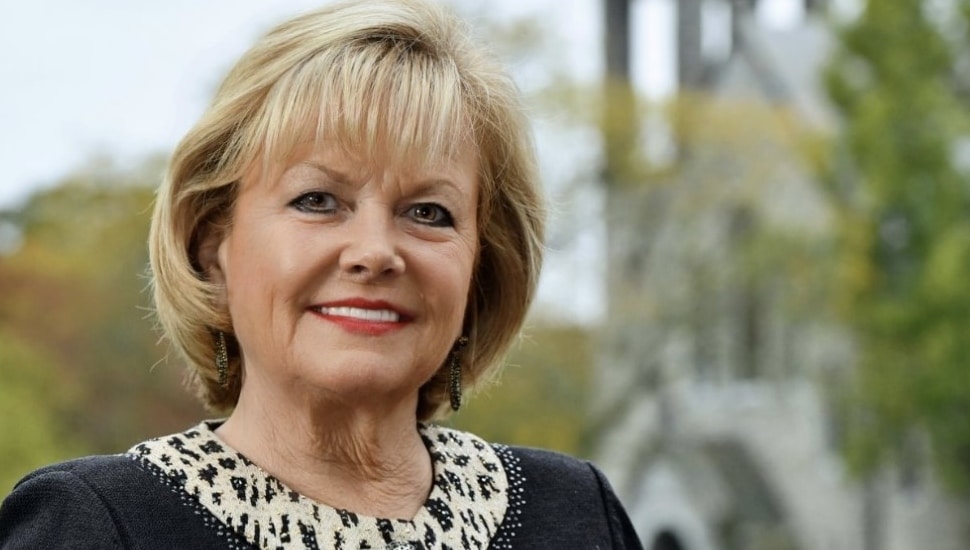
Montgomery County Leadership: Jill Marsteller, Founder and CEO, CALICO International, LLC
April 11, 2023
Jill Marsteller, former Ursinus College president and founder and CEO of CALICO (Creative Advisors Looking to Improve Charitable Organizations) grew up in rural New Jersey. She loved playing in the woods and cornfields and was surrounded by love from her parents, an aunt and uncle, and neighbors who acted as “surrogate grandparents.”
In high school, she was active in a wide variety of organizations, was a member of the National Honor Society, and took on new responsibilities working at a senior living facility.
Marsteller began her career as a teacher but soon transitioned to advancement, working most prominently at Ursinus College, Lehigh University, and Haverford College. She founded CALICO to help nonprofits work more effectively.
Where were you born, and where did you grow up?
I was born in New Jersey and lived there briefly, and then I grew up in Morrisville and Yardley in Bucks County, Pennsylvania until the week that I turned seven. Then we moved to a very rural area in South Jersey called Vincentown, now known as Southampton.
I went from very progressive Yardley — which boasted an “ungraded” elementary school system where you could be in first grade, but you might be doing fifth-grade science — to a place where they let the boys out early from school in April for planting season.
The best part is that I was exposed to a wide array of people. Adjusting to all of that as we went along was a big motivator for me to become a teacher. I have wanted to be a teacher since I was four.
What did your parents do?
My mother was a homemaker, and my father was in the car business. He was in sales and management and ultimately was the president of an auto auction.
Where were you in the pecking order?
I was an only child. I also had an aunt and uncle with no children, so I always say I grew up with four parents.
What other memories have stayed with you from growing up in South Jersey?
In South Jersey, being in nature and growing up initially in an all-boy neighborhood taught me valuable lessons. I wanted to do it all, so I was tromping through the woods, getting lost in cornfields, and finding stray dogs on walks in apple orchards. Those experiences — and living 45 minutes from the ocean — made nature a “go-to” place for me.
My parents’ best friends were 20 years older, and they became my surrogate grandparents. Other people in the neighborhood were like aunts and uncles. I grew up an only child surrounded by a lot of big-family love.
Did you play any sports in high school?
Although I’m a huge sports fan, I managed to get a JV letter in softball by sheer dedication. That was the extent of my athletic experience. Sports are not my talent, but they are one of my favorite pastimes. I am especially a huge Eagles and Phillies fan.
Since you weren’t gifted athletically, how did you distinguish yourself in high school?
I was in a number of clubs and organizations. Music was my thing, singing, and I learned to play the French horn and the alto horn to be in the band. I was in a state choir that did an opera. My leadership roles in student government and other organizations, such as Future Teachers of America also taught me a lot.
Another memorable thing is that another student and I decided it wasn’t right that only seniors got to have a prom, so we created a dance called the “Snow Ball” for all the other classes. That was definitely a learning experience.
Ironically, when I look back on it, I was always involved in volunteer activities and fundraising throughout high school and college.
Did you have any part-time jobs when you were a teenager?
My first job was really special. I worked in food service at Medford Leas. It’s one of the first multifaceted senior living centers where you could progress from independent living to full care.
At one point, I thought I would teach during the year and run a bed and breakfast at the shore in the summer, so I asked my boss to let me do anything he needed. He put me on a steam table one day. He walked me into the refrigerator on another occasion and said, “Well, here’s where the food is — what would you make for a menu?” I was only 17 years old, but that job gave me a great deal.
I learned about doing things no one wants to do. For instance, I took the 6:00 morning shift on the weekends. And I learned a lot about life, because I was dealing with elderly people.
There was a man named Mr. James, who was always first in line every single weekend for brunch. And one day Mr. James didn’t show up.
As a high school senior I became very aware that life is on a timeline.
Other jobs that stay with you?
Inspired and assisted by an Ursinus College graduate who was and remains a close friend, I was a bank teller at Continental Bank in college. I traveled all over Philly and the suburbs to different branches in Pennsylvania. They also placed me in their operations center, which was fascinating. I would track down lost and missing items. It was fun to learn so many aspects of banking at such a young age.
What about music? You indicated that you had a passion for music. What kind of music did you listen to?
I listened to everything from Beethoven to jazz, classic rock, The Beatles, Moody Blues, Chicago, and The Carpenters.
Additionally, I enjoyed music from my parents’ generation and regularly tuned into to Sid Marks’ Frank Sinatra radio shows and even saw Sinatra live! I also loved Motown — still do. Personally, I wrote music and played guitar.
Other than communing with nature, music was how I got through adolescence — that and poetry. I liked (and I still like) great music with great stories and harmonies.
Where did you go to college?
A friend of mine who also wanted to be an English major was going to Ursinus College. I also knew my geometry teacher had attended Ursinus, and she was one heck of a good teacher. My parents and I took a ride to campus. I opened the car door, looked around, glanced back at my dad, and said, “This is it.”
Was Ursinus a good choice for you, looking back?
It changed my life in all the best ways. I got challenged and pushed by my professors, and I rose to that. Beyond the classroom, Ursinus is a close-knit community; we could know our professors and administrators well and go to their houses for dinner. We weren’t just learning subject matter; we were learning lifelong skills.
Again, I was in student government and a lot of activities. But most of all, it was the liberal arts experience and the value of the relationships on that campus that impacted me the most.
I sang the Messiah every year when they had that. There was a madrigals group I belonged to where a very small group of us learned all of our parts by sight-reading sheet music.
It was everything a liberal arts experience is supposed to be — exposing me to a vast array of subjects and learning opportunities in a residential living environment.
When was the first time you realized that you were coming to the table with something different than other kids?
I always knew I was more intellectually curious, for better and worse. Sometimes that’s a weird thing, and sometimes it’s a valued thing. At Ursinus, I found more intellectually curious kinds of people.
I didn’t think of myself as bringing something unique to the table for a long time.
Probably the first time was when I was teaching at an all-girls Catholic school in the suburbs of Chicago. I later won a National Endowment for the Humanities grant in no small part because of my teaching experiences there. Another “aha” moment came when I realized that advancement would be my career and that the way I approached it — forming lasting relationships and inspiring people to be impactful and building very strong teams — were my hallmarks.
You had a special calling in the classroom. What do you bring to teaching that touches students?
I’ve always been passionate about my subject, and I’m passionate about my students. They ignite me. You see the potential in someone that they don’t realize they have. Doing that with multiple people in a single room is so exciting and wonderful.
It translated into my management leadership style, too. I could read people and loved motivating them to become more than they thought they could be. It’s a two-way street – I’m motivating them, and they’re inspiring me. It sort of became my way of giving back what Ursinus gave to me as a young college student.
Looking back over your career, Jill, who were the people who saw promise in you and opened doors for you?
The first one that comes to mind is Dick Richter, president of Ursinus, when I transitioned from being an adjunct instructor in English to advancement. We were starting to create the Berman Museum of Art. He said, “I’ve made speeches declaring we would not take from the operating budget, that we would look for new resources to fund the ongoing expenses. I want you to think about this as your project.” I said, “Great! I love art; I know how to raise money a little bit.” He walked out the door, turned back around, and said, “Oh, and by the way, you can’t ask the same people from the annual fund for money and rob Peter to pay Paul. I need this to be new money.”
I sat at my desk for the next week and stared at the telephone, thinking, “Where do I start?” Finally, I picked up the phone and started calling people I knew, asking, “Do you know anybody who appreciates art?” I swear to God, that’s how I did it. We created a Friends of the Berman Museum organization comprised of business leaders, community members, alums, and art aficionados, and we went from there. I had promised the president we’d raise the operating budget. It took three years, but, ultimately, we did it.
My first boss in advancement, gave me an opportunity by giving me flexibility, which was rare in that time period. He said, “I don’t care how you do it. Just meet your goals.” That was long before women were working from home.
The final person in that early time was when I went to Lehigh. I remember sitting in a meeting about the construction of the Zoellner Arts Center in my first couple of weeks there. I was listening and thinking about their budget numbers, and they seemed off to me.
So, I went up to the president, Peter Likins, privately after the meeting and said, “I don’t know for sure, but I think you’re going to lose about $1 million in operating expenses if you continue to do it this way.” He said, “Well, could you raise the difference? Or at least come back to me with your ideas about how to solve this problem?” We opened the following year with a huge black-tie fundraiser and the New York Philharmonic performed. By then, I had also been tapped to be Lehigh’s first non-alumni and female Vice President of Advancement, which included oversight of the the first year of the Zoellner Arts Center operations.
After Lehigh University, I moved on to become Vice president for Advancement at Haverford College, and wow, did the Quakers teach me a lot! I went from the very hard-driving, quantitative, business-minded approach that is Lehigh to Haverford’s “seasoning” of proposals, patience, and allowing everyone a voice.
That was the “goldilocks” moment of my career. Not only did my time there make me a better professional and person, but I met then President Tom Tritton at Haverford, and we are still business partners today. I also led a $200 million campaign there through the tragic time of 9-11 and its aftermath. I was actually going to see a donor and was getting out of a cab by the North Tower as the first plane struck. Haverford and I will forever be bonded by that experience.
So, tell me about your CALICO venture.
CALICO stands for Creative Advisers Looking to Improve Charitable Organizations. I created it as an LLC in 2014. I’ve been working with all kinds of nonprofits ever since. Education and the arts are our sweet spots. As with my students when I taught, I especially enjoy helping organizations reach their fullest potential, building better boards, finding new ways of working and developing close-knit relationships.
There’s a trend of fewer donors giving more money to fewer places. That means donors are putting more of their eggs in a few baskets. Therefore, nonprofits have to make compelling cases about how their donors can make a real difference and have significant impact on the future of an organization.
We try to help nonprofits communicate that, help them put into place best practices, inspire their creativity and, not insignificantly, work within the client’s culture. We’ve led several strategic planning processes, and each time we adjust the approach, process, and timeline to fit the organization. I think that’s what makes us distinctive — we’re so adaptable, and we meet the client where they are.
Do most of your clients start with a strategic plan?
Sometimes a client will ask me to do an assessment of their programs, fundraising or governance, and then maybe a third of my clients get to a strategic plan.
What do you do with all your free time?
I still love to read. I still love music. My therapy is cooking — usually creatively, sometimes with a recipe.
I love the ocean. I love to take long walks. That childhood experience of connecting with nature has not left me.
And my family — I have a 90-year-old mom, and I’ve got sons and daughters and family here, and in Florida and Georgia, so I love to be part of their lives.
I also still like to travel a lot in this country. Despite all the places I went to as a college administrator, there are still a lot of places I’ve never seen such as Nashville and New Orleans that are on my bucket list.
Do you have a favorite place that you’ve been in the United States?
I still love New York City. My passion for the place somehow grew even stronger after 9-11. My husband and I have a timeshare there. I love to go to Key West and chill out in the winter, especially since my birthday falls in January. Key West is an anything-goes, everybody-loves-everybody place.
I lived in Chicago for a while, and I love Chicago as a city. I am not as fond of the weather as I am the people there, and I appreciate the midwestern culture. My best friend remains there, so I always enjoy going back to “My Kind of Town.”
What about favorite authors? Do you have a favorite author?
I like John Irving. He takes such interesting things and makes them more so. I embraced Faulkner when I was growing up. Herman Hesse’s Siddhartha, and Ralph Ellison’s Invisible Man really were thought-provoking to me in high school.
I wrote my Masters Thesis on whether the 19th Amendment changed the role of female protagonists in the 1920s. I like anything that’s social history wrapped up in fiction. I am inspired by the poetry of Maya Angelou and am blown away by Amanda Gorman. Recently, I have enjoyed works by Richard Russo, Kristin Hannah, Lisa See, and Celeste Ng.
The best beach reads, though, belong to Elin Hilderbrand — by the way, a granddaughter of an Ursinus alum!
What is something big that you’ve changed your mind about over the past 10 years?
Ironically, my comfort level with older people and health issues and death. I’m not afraid of it anymore.
I love being with older people — like when I worked with one of my recent clients, we built the McClean Memory Care Center at Meadowood Senior Living. What a great experience that was. I came full circle to my original first job. It will always be scary, but I have found that aging is something to lean into and embrace in your own way. Those Meadowood folks continue to inspire me.
It’s a crazy world out there, Jill. What keeps you hopeful and optimistic?
Young people! I did focus groups as part of the strategic plan for Haddonfield Friends School recently. The last ones I did were with a group of fifth graders and eighth graders. The person taking the notes was an early childhood educator and parent at the school. The eighth graders were so impressive in how they engaged in civil discourse, how they answered, and how articulate and thoughtful they were that she was crying.
No one staged this. They were being eighth graders, but eighth graders who’ve been exposed to this incredible educational opportunity, holistically, for life. They are going to go out and take that with them forever.
Similarly, I’m still in touch with a young Ursinus alumnus from Zimbabwe who’s trying to find funding to become a medical doctor and the female head of the Ursinus student newspaper who’s graduating in May. All you have to do is spend 15 minutes with someone like them, and you have such faith and confidence in where we’re going and how we can get along, talk to one another and listen. They embody hope. When I was the interim and first female president of Ursinus College last year, I spoke of “grace,” “gratitude” and “greatness.” On a college campus, those words were reflected daily in our students.
Finally, Jill, what’s the best advice you’ve ever received?
In my drive to do what I did and be a mother of four children, I was always going and going and going (more than one person has nicknamed me, “The Energizer Bunny.”) But during my time at Haverford, a consultant told me, “Now that you’re in a senior leadership position, you need to block time for yourself and for clearing your brain to think. You need oxygen.”
After he told me this, I left my laptop on a plane twice in six months. Luckily, I recovered both of them, but after the second time, I thought, “This is a sign from God. I am never going to work on a plane again.” And I didn’t. I read, I closed my eyes, thought, and dreamed. You can only be a strategic or visionary leader with that time to clear your head or take those long walks.
The other advice comes from the old Shakespearean quote, “To thine own self be true.” You have to be an authentic leader. If you are different from who you are, everybody around you will figure that out pretty quickly.
No matter what, when you’re in a crisis — and I’ve been in several now — you always, in a crisis, revert to who you are. It will come out somehow — you might as well “do you” as folks so often say now every day of your life. Be an authentic leader and maybe blaze a trail or create something new along the way.
Reposted from https://montco.today/2023/04/jill-marsteller-calico-international/
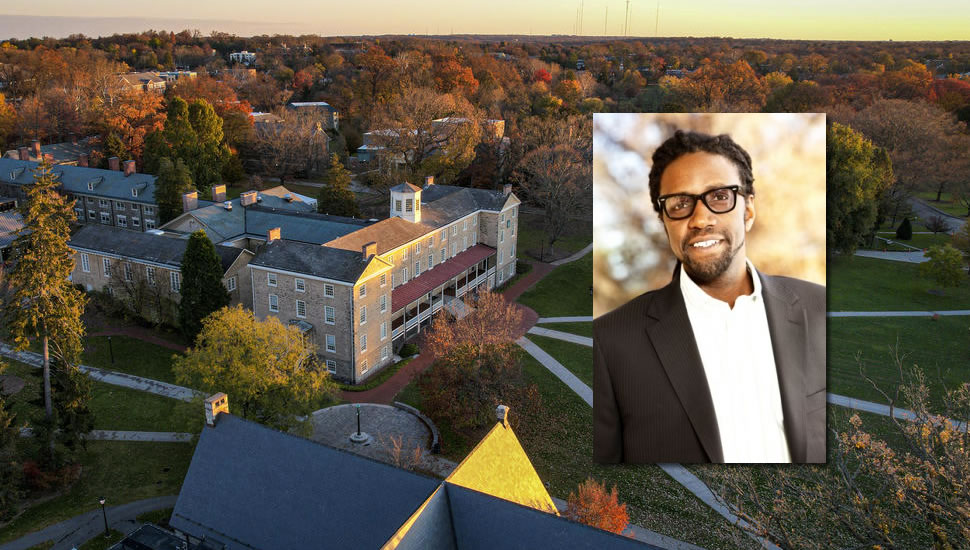
First Jill Sherman Fellow Joins Haverford’s Institutional Advancement
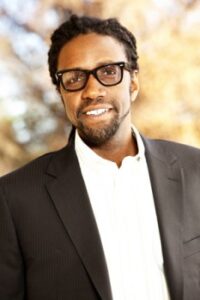
Terrence Williams comes to Haverford courtesy of the new Jill Sherman Fellows Program for Leadership in Advancement, designed to encourage up-and-coming young professionals.
A new program at Haverford will provide young professionals with broad-based experience in college relations and advancement from the ground up.
The Jill Sherman Fellows Program for Leadership in Advancement, established in the fall of 2007, is named for a former Vice President of Institutional Advancement who led the successful Educating to Lead, Educating to Serve campaign; ending in 2004, the four-year campaign raised more than $200 million for the College. The program was designed as a way to thank Sherman for her service to Haverford, and is funded by the College and by donors who wished to support initiatives important to Sherman, most notably professional development, teaching and education, and the mentoring of new staff.
“Jill is an educator, and takes that role very seriously whether it is educating donors about the needs of the institution she represents, or educating the institution about their donors and their philanthropic interests, or educating young professionals as they begin their careers,” says Catherine Koshland ’72, Vice Chair of Haverford’s Board of Managers.“She herself benefited from many mentors as she grew as a development professional, and it seemed fitting to honor her contributions to Haverford and to the profession with this fellowship opportunity.”
The first Jill Sherman Fellow, Terrence Williams, arrived at Haverford on Feb. 18 and will work in the office of Annual Giving. Williams has an extensive background in student and residential life, most recently at the University of Georgia. He holds a bachelor’s degree in psychology from Salisbury University and a master’s in education leadership from the University of Arkansas. He is also an entrepreneur, having started a Maryland-based coffee shop called Rise Up Coffee, which serves organic, fair trade and shade-grown blends raised and roasted by friends.
“I am thrilled to be embarking on this journey with the talented professionals that make up the Annual Giving team,” Williams says.“I am looking forward to being part of Haverford’s tradition of excellence and making significant contributions to the College.”
As a Fellow, Williams will be exposed to all aspects of Institutional Advancement, from conferences to committees to travel opportunities. As part of Annual Giving, he’ll help to manage the Student Phonathon, volunteers, the Senior Gift program and other undergraduate initiatives.
“I feel fortunate to have someone focused on philanthropic education for current students, preparing them for life after college, and helping them understand what it means to give back to an institution,” says Deb Strecker, Director of Annual Giving.“The Fellow will perform work that will have incredible benefits for the College.”
-Brenna McBride
